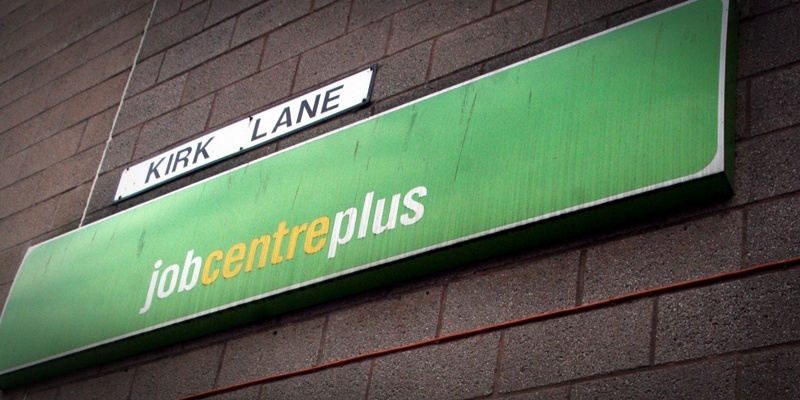The number of people out of work in Scotland has fallen again, official figures have shown.
Tory finance spokesman Derek Brownlee welcomed the fall in unemployment but added, “Scotland has relied too heavily on public sector employment in the past and it is time to focus on helping entrepreneurs build new businesses, and on supporting existing small businesses.”
Scottish Trades Union Congress general secretary Grahame Smith said the statistics “did not reflect” the labour market.
“The rise in employment is accounted for by increasing numbers of people working in part-time, not full-time, jobs.”
Labour Force Survey statistics show 70.9% of Scots of working age have a job, compared to the UK average of 70.5%.
Just under 600,000 people worked in the public sector in the last quarter of 2010, a drop of 18,000 on the same period the previous year, with 1.9 million in the private sector.
The only local unemployment figures released were for Jobseeker’s Allowance claimant count.
These are not seasonally adjusted, so they do not reflect the month-on-month fall in the headline figure.
This data showed the number of people on benefits across Tayside and Fife standing at 21,645 in February, a rise of 304 on the previous month and up 942 on February last year.
At local authority level, last month’s claimant count was 2539 in Angus (3.7% of working-age population) 5559 in Dundee (5.9%), 11,036 in Fife (4.7%) and 2511 in Perth and Kinross (2.7%).
The Scottish average for claimant count was 4.3% of the working-age population compared to 3.8% for the whole of the UK.
Meanwhile, figures published by the Scottish Government showed the number of people working in the public sector in Scotland had fallen by 18,000 to 595,800 in the past year.
The figures also revealed one in four Scots work in the public sector.
Lib Dem finance spokesman Jeremy Purvis accused the SNP government of having “warped priorities” on the public sector.
“Under the SNP, 10,700 council staff have lost their jobs,” he said.
“But over the same period of time, Liberal Democrat research shows the pay bill for public sector staff earning over £80,000 a year has gone up by £50 million.”
However, there were warnings that the 16,000 drop between November and January could be partially explained by people finding temporary jobs over the Christmas period.
The Office for National Statistics said there were 218,000 unemployed, giving a rate of 8.1% just above the UK average unemployment rate of 8%.
The latest change follows figures which showed a drop of 13,000 in the final three months of last year.
Labour market statistics also show employment in Scotland has increased by 8000 over the three-month period, taking the total to more than 2.4 million.
In February, the number of people out of work and claiming Jobseekers’ Allowance decreased by 2100 to 137,600 the first monthly fall since September.
Scottish secretary Michael Moore welcomed the figures but warned there was no room for complacency.
“There are still too many Scots out of work, and the government is determined to help,” he said.
“At next week’s Budget, we will set out further details of the government’s plans for returning the country to sustainable growth with a balanced economy.”
First Minister Alex Salmond said the figures were “very encouraging” and represented a “substantially improved position” for Scotland in terms of economic recovery.
“The figures present further signs that Scotland’s economy is strengthening and show the Scottish Government’s robust actions to support jobs, skills and training are delivering real results,” he said.
“For four consecutive monthly labour market statistics releases, Scotland has been the only UK nation with rising employment and falling unemployment, and Scotland has a higher employment rate and lower economic inactivity rate than the UK.”
Mr Salmond called on the Chancellor to scrap the planned fuel duty rise in the Budget.
He also called for tax breaks to support the international competitiveness of Scotland’s video games industry.WarningCitizen Advice Scotland has given warning that many of the jobs which have boosted the figures would have been part-time or on short-term contracts.
“Much of the reduction that has been reported today will have been due to the fact that some people got very temporary jobs over the Christmas/New Year period,” said chief executive Lucy McTernan.
“That will have helped them for a few weeks but will not have given them the kind of sustained income they really need.”
Labour finance spokesman Andy Kerr made a different interpretation of the figures and claimed total unemployment had risen by 2000 since the previous round of figures last month.’Grim reading'”These figures make grim reading,” he said.
“They show that the recent trend of falling unemployment in Scotland is going into reverse.
“Unemployment is a personal tragedy for those who experience it and we desperately need to promote growth in the economy.
“I am particularly concerned that the number of 18 to 24-year-olds claiming jobseekers’ allowance has increased for the third successive month.
“We are now facing a crisis in youth unemployment which the government has failed to deal with.
“Young people are doing much worse in this recession than other groups and if we don’t take action to deal with this we will face a generational time bomb.
“That is why one of the first actions of a Labour government in Scotland will be to introduce a Scottish Future Jobs Fund, to create 10,000 jobs or training places for young people.”
The number of 18 to 24-year-olds claiming Jobseeker’s Allowance rose from 40,000 to 41,700 between January and February, an increase of 4.2%, although these figures are not seasonally adjusted.
